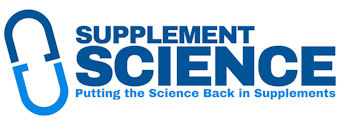What is Tribulus?
Tribulus terrestris is a component of several testosterone boosting supplements that are available over-the-counter and widely recommended, generally as enhancers of human vitality. TT is touted as a testosterone booster and remedy for impaired erectile function; therefore, it is targeted at physically active men, including male athletes. Based on the scientific literature describing the results of clinical trials, this review attempted to verify information on marketing TT with particular reference to the needs of athletes. It was found that there are few reliable data on the usefulness of TT in competitive sport. In humans, a TT extract used alone without additional components does not improve androgenic status or physical performance among athletes. The results of a few studies have showed that the combination of TT with other pharmacological components increases testosterone levels, but it was not discovered which components of the mixture contributed to that effect. TT contains several organic compounds including alkaloids and steroidal glycosides, of which pharmacological action in humans is not completely explained. One anti-doping study reported an incident with a TT supplement contaminated by a banned steroid. Toxicological studies regarding TT have been carried out on animals only, however, one accidental poisoning of a man was described. The Australian Institute of Sport does not recommend athletes’ usage of TT. So far, the published data concerning TT do not provide strong evidence for either usefulness or safe usage in sport.
From ncbi.nlm.nih.gov
Benefits
“First scientific reports about beneficial effects resulting from the use of TT were provided by researchers of the Bulgarian Pharmaceutical Group. They stated that TT extracts increased libido, blood testosterone and spermatogenesis, and improved the male sexual function.”
“Tribulus terrestris is an herbal nutritional supplement that is promoted to produce large gains in strength and lean muscle mass in 5-28 days.”
“Tribulus terrestris is an herbal nutritional sup-plement that is claimed to have performanceenhancing capabilities that has ensured thesuccess of many top Bulgarian weightlifters.”
“It has been sug-gested that when T. terrestris is used in combination withan effective training program and a high protein diet, itis possible to gain several pounds of lean muscle mass inthe first 3–4 weeks (15).”
“Administration of cadmium (Cd) significantly increased the peroxidation markers such as malondialdehyde and protein carbonyls along with significant decrease in antioxidant markers such as super oxide dismutase and reduced glutathione in liver and kidney tissues. Coadministration of ethonolic extract of T. terrestris or vitamin E along with Cd significantly reversed the Cd induced changes along with significant reduction in Cd load.”
“T. terrestris has potassium and fair amoung of nitrates, and these two ions are very important tin their function from the point of view of diuresis.”
References
https://www.ncbi.nlm.nih.gov/pmc/articles/PMC4120469/
https://www.ncbi.nlm.nih.gov/pubmed/17530942
http://www.academia.edu/23105718/
https://www.ncbi.nlm.nih.gov/pubmed/22670477
https://www.ncbi.nlm.nih.gov/pmc/articles/PMC3331096/pdf/ASL-17-144.pdf
Side Effects
“Studies on TT toxicity have been conducted only among animals. Arcasoy et al. (1998) established for mice that the dose corresponding LD 50 amounts to 813 mg/kg. Symptoms of severe damage of cardiac muscle, liver and kidney were noted in native goats and sheep when their daily meals contained 80% fresh plants (Aslani et al., 2003; Aslani et al., 2004).”
References
https://www.ncbi.nlm.nih.gov/pmc/articles/PMC4120469/
From Wikipedia
Tribulus terrestris is an annual plant in the caltrop family (Zygophyllaceae) widely distributed around the world, that is adapted to grow in dry climate locations in which few other plants can survive.[2]
It is an invasive species in North America.[2] Like many weedy species, this plant has many common names, including goat’s-head,[1]bindii,[3] bullhead, burra gokharu, Bhakhdi, caltrop,[1] small caltrops,[4] cat’s-head,[1][3] devil’s eyelashes,[5] devil’s-thorn,[1][5]devil’s-weed,[1] puncture vine,[2] puncturevine,[1][6] and tackweed.[7]
Some body builders use T. terrestris extract as a dietary supplement with the belief that it increases testosterone levels. The belief was popularized by the American bodybuilder Jeffrey Petermann in the early 1970s. However, T. terrestris has failed to increase testosterone levels in controlled studies.[17][18][19] It has also failed to demonstrate strength-enhancing properties,[20] a finding indicating that the purported anabolic steroid effects of Tribulus terrestris are untrue.







